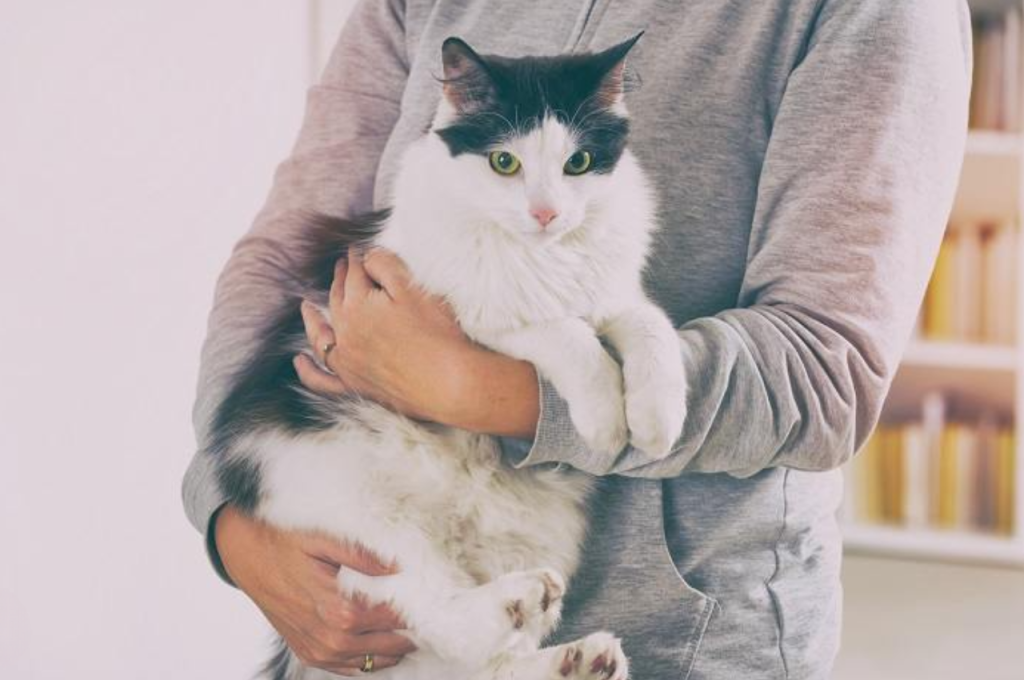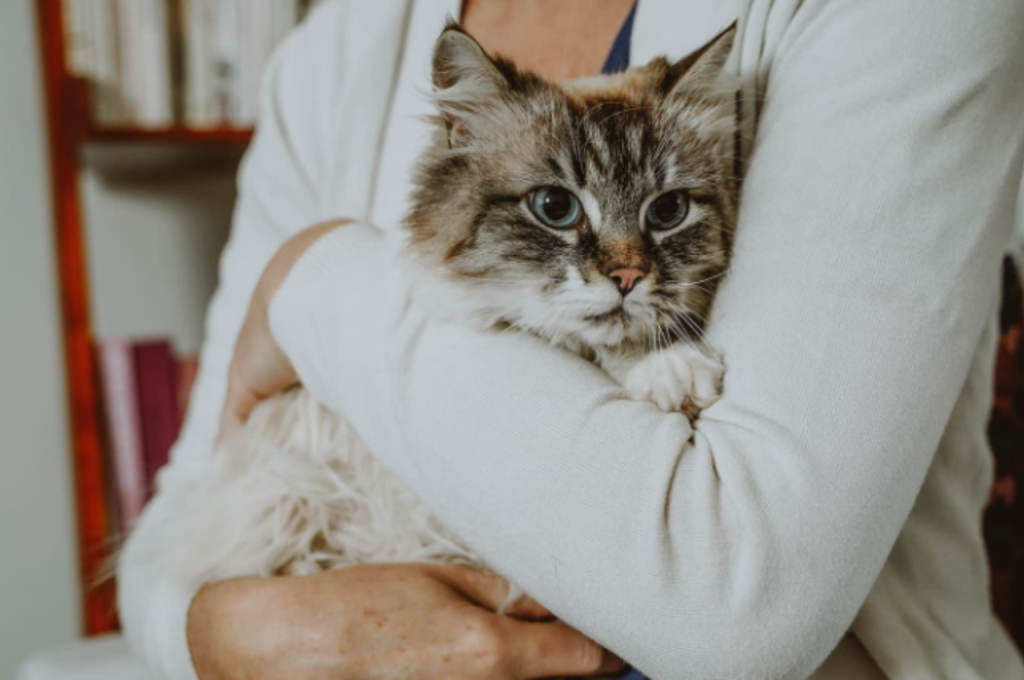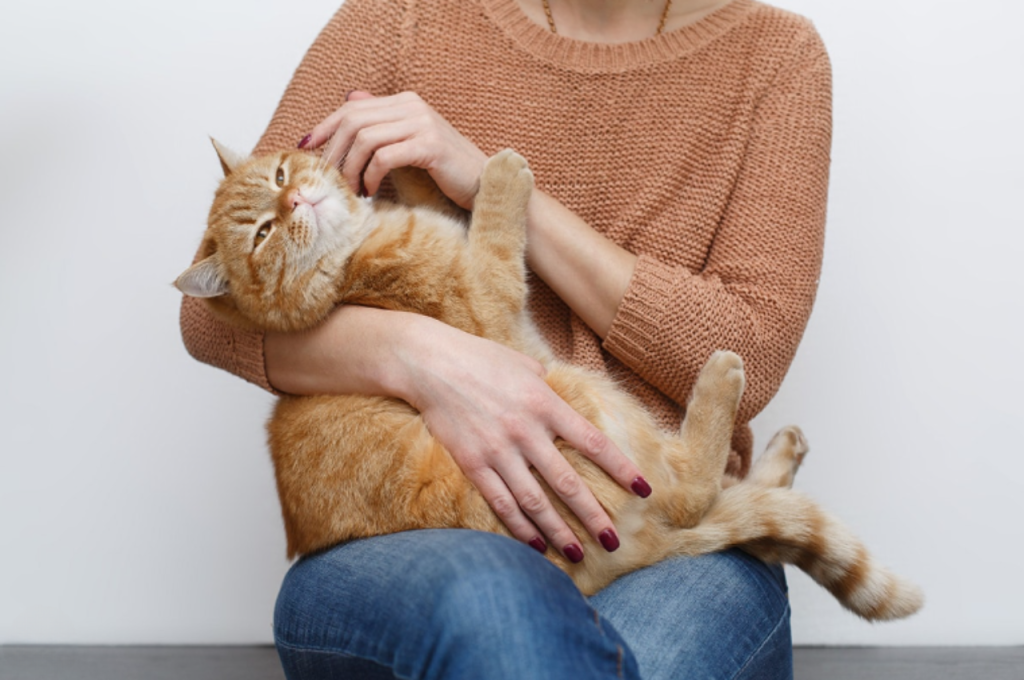Yes, cats do have favorite humans. They form strong bonds with certain individuals based on trust and affection.
Cats, with their intriguing personalities and independent nature, have captivated humans for centuries. As pet owners, many of us have often wondered whether our feline friends show preferences among the people in their lives. Do they truly have favorite humans?
The answer is a resounding yes. While cats are known for their independent streak, they are also capable of forming deep emotional connections with certain individuals. These preferences are not solely based on who feeds them or provides the most attention, but rather on trust, shared experiences, and genuine affection. Understanding the dynamics of the human-cat bond can shed light on the fascinating nature of these captivating creatures and provide insights into how to strengthen the bond with our beloved feline companions.
Feline Social Behavior
Cats are known for their unique social behavior that often leaves us wondering about their preferences and attachments to humans. While cats may not show affection in the same way as dogs, they do form bonds with their favorite humans based on a variety of factors.

Understanding Cat Communication Signals
Cats communicate through a combination of vocalizations, body language, and behaviors. Key signals such as purring, meowing, and tail movements help them convey their moods and feelings to those around them. Understanding these signals can provide valuable insights into a cat’s preferences and social interactions.
The Role of Hierarchy in Cat Groups
Cats are naturally inclined towards establishing hierarchies within their social groups. This hierarchy influences how they interact with humans and other cats, with dominant cats often taking the lead in decision-making and resource access. Recognizing and respecting these hierarchies can help strengthen the bond between a cat and its favorite human.
Attachment in Cats
Cats form strong attachments to their favorite humans, showing affection through purring, kneading, or seeking physical proximity. These bonds are built through positive interactions, such as providing food, play, and attention. While cats may have preferences for certain individuals, they also form attachments to multiple people in their household.
Investigating Emotional Bonds With Humans
Cats may have a reputation for being independent creatures, but they are not immune to forming strong emotional bonds with their human companions. As sociable animals, cats can form attachments to their favorite humans. This emotional bond goes beyond being merely tolerant or friendly, as it involves a deep level of trust and affection.
Factors Influencing Cat Preference
Like humans, cats have individual personalities, preferences, and idiosyncrasies that contribute to their choice of favorite humans. While there may be multiple factors at play, here are some key elements that can influence a cat’s preference:
- Positive associations: Cats may gravitate towards humans who provide positive experiences such as playtime, treats, or grooming sessions. These interactions create a sense of pleasure and reinforce a cat’s bond with that individual.
- Consistency and routine: Cats thrive on routine and are more likely to form attachments with humans who provide a stable and predictable environment. When a cat feels secure, they are more likely to develop a preference for a specific individual.
- Physical and emotional support: Cats are sensitive to their human emotions and can often provide comfort and support. Humans who display empathy, understanding, and affection may be more likely to become a cat’s favorite human.
- Respect for personal space: Cats value their personal space and may appreciate humans who respect their boundaries. Giving a cat the freedom to approach or withdraw as they pleases can help develop trust and strengthen the emotional bond.
- Socialization and early experiences: Cats that have been exposed to a variety of positive social experiences during their early development stages may be more likely to form strong attachments with humans.
While these factors are influential, it’s important to remember that every cat is unique and may have different preferences and attachments. The key is to provide a loving and nurturing environment where your cat feels safe and valued.
Behavioral Studies
Cats are intriguing creatures, often leaving us wondering about their preferences and behaviors, such as whether they have favorite humans. This curiosity has sparked numerous studies and observations to uncover the truth behind the relationship dynamics between cats and their human companions. Behavioral studies have provided insightful evidence through rigorous research studies and observations of cat behavior in home settings.
Evidence from Research Studies
Research studies on feline behavior have shed light on the concept of cats having favorite humans. One study published in the Journal of Comparative Psychology suggested that cats do show individual preferences towards certain individuals within their household based on their interactions and bonding experiences. The study indicated that cats often exhibit behaviors like seeking attention, seeking proximity, and displaying more positive responses to certain individuals, indicating a preference for specific humans.
Observations of Cat Behavior in Home Settings
Observing cats in a home setting provides valuable insights into their social interactions and preferences. Through direct observations in households, researchers have noted that cats display unique behaviors towards specific individuals, such as following them around, purring more frequently, or seeking physical contact. These observations reinforce the notion that cats do develop preferences for certain humans based on their interactions and experiences.
Factors Affecting Feline Preferences
Factors affecting feline preferences and whether cats have favorite humans are fascinating subjects. Research suggests that factors like familiarity, the quality of interaction, and individual cat personality play a role in determining a cat’s preferred human companions. Understanding these factors helps foster stronger bonds with our feline friends.

Understanding the factors affecting feline preferences can shed light on this intriguing question. From the interplay of personality traits to environmental enrichment, several elements influence a cat’s attachment to its human companions.
Personality Traits of Cats and Humans Cats, like humans, have distinct personality traits. Some are more social and affectionate, while others may be more independent and reserved. Similarly, humans vary in their levels of patience, affection, and understanding of feline behavior. Mutual compatibility between a cat’s personality and that of its human can greatly impact their bond.
Environmental Enrichment and Socialization – The environment in which a cat is raised, along with the opportunities for socialization, can significantly shape its attachment preferences. Enriching an indoor cat’s space with toys, interactive play, and comfortable resting spots can foster a stronger bond with their human.
Likewise, early socialization with diverse experiences and positive interactions can contribute to a cat’s preference for a particular person. Understanding these factors offers insight into the complex dynamics of feline-human relationships. By being mindful of personality traits and providing enriching environments, humans can cultivate stronger bonds with their feline companions.
The Human Perspective
Cats have been captivating humans for centuries with their mysterious and independent nature. As cat owners, we often wonder if our feline friends have a favorite human. Do they show preferences towards certain people, or is it all in our minds? In this article, we will explore the human perspective when it comes to understanding cat behavior and the implications it has for human-feline bonding.
Perceptions of Cat Behavior
When it comes to interpreting cat behavior, humans often rely on their observations and experiences. It’s important to remember that cats communicate differently than humans, and their actions and body language may not always align with our expectations. Despite these differences, humans tend to project their feelings onto their furry companions.
| Perception | Description |
| Cats show affection like humans. | Some humans assume that cats should display affection in the same way humans do, such as hugs or kisses. |
| Preference for certain individuals. | Humans often believe that if a cat chooses to spend more time with them, it means they are the cat’s favorite human. |
| Jealousy towards other humans. | Many humans interpret their cat’s behavior, such as hissing or growling, as a sign of jealousy towards others. |
| Desire for independence. | Humans sometimes misinterpret a cat’s desire for alone time or hiding as rejection. |
Implications for Human-feline Bonding
Our perceptions of cat behavior can have a profound impact on our relationship with our feline companions. When we believe that our cat has a favorite human, it can deepen the bond between us and the cat. It creates a sense of validation and connection, making us feel special and valued.
On the other hand, if we misinterpret or misunderstand our cat’s behavior, it can lead to frustration and disappointment. We may feel rejected when our cat chooses to spend time alone or with someone else. This can strain the human-feline bond and hinder the development of a strong and trusting relationship.
It’s crucial to remember that cats are individuals with their unique personalities and preferences. While they may show certain behaviors that indicate a preference for one person over another, it doesn’t necessarily mean they love one person more. Cats can form multiple strong bonds with different individuals.
Key Takeaways:
- Humans often project their feelings and expectations onto their cats, leading to misunderstandings of cat behavior.
- Understanding and being aware of these perceptions can help foster a stronger human-feline bond.
- Cats can form strong relationships with multiple individuals.
- Clear communication, patience, and respecting a cat’s need for independence are key to nurturing a healthy bond.
Interpreting Cat Behavior
Cats are mysterious creatures, expressing their emotions in subtle ways that can often leave their human companions guessing. Understanding your feline’s behavior is essential in building a strong bond. By observing their actions and body language, you can decipher whether your cat sees you as their favorite human.
Decoding Affectionate Gestures
- Purring: Indicates happiness and contentment.
- Slow Blinks: A sign of trust and affection.
- Kneading: Mimics kitten behavior and signifies comfort.
Recognizing Signs of Discomfort
- Flattened Ears: Show unease or aggression.
- Hissing or Growling: Signals of fear or agitation.
- Tail Twitching: Indicates irritation or annoyance.
Enhancing the Relationship
Curious about whether cats have a preferred human? Enhancing the relationship with your feline friend through consistent care and affection may lead to a stronger bond over time. Understanding your cat’s behaviors and cues can help nurture a special connection between you and your pet.
Building Trust and Bonding With Cats
Cats are known for being selective when it comes to choosing their favorite humans. Building trust is essential for a strong relationship. Here are ways to bond with your feline friend:

- Spend quality time with your cat daily.
- Respect their boundaries and body language cues.
- Play games that they enjoy to build a connection.
Creating A Positive Environment for Feline Companionship
By providing a positive environment, you can strengthen your bond with your cat. Consider these tips:
- Offer a comfortable space with cozy bedding.
- Provide high-quality food and fresh water daily.
- Maintain a clean litter box and fresh air circulation.
Conclusion
Cats can indeed have favorite humans. While their preferences may vary from one cat to another, they form special bonds based on trust, care, and companionship. By nurturing these connections through quality time, attention, and positive experiences, cat owners can strengthen their bond with their feline friends.
Understanding and respecting a cat’s individual preferences can lead to a mutually enriching and rewarding relationship for both humans and cats.
